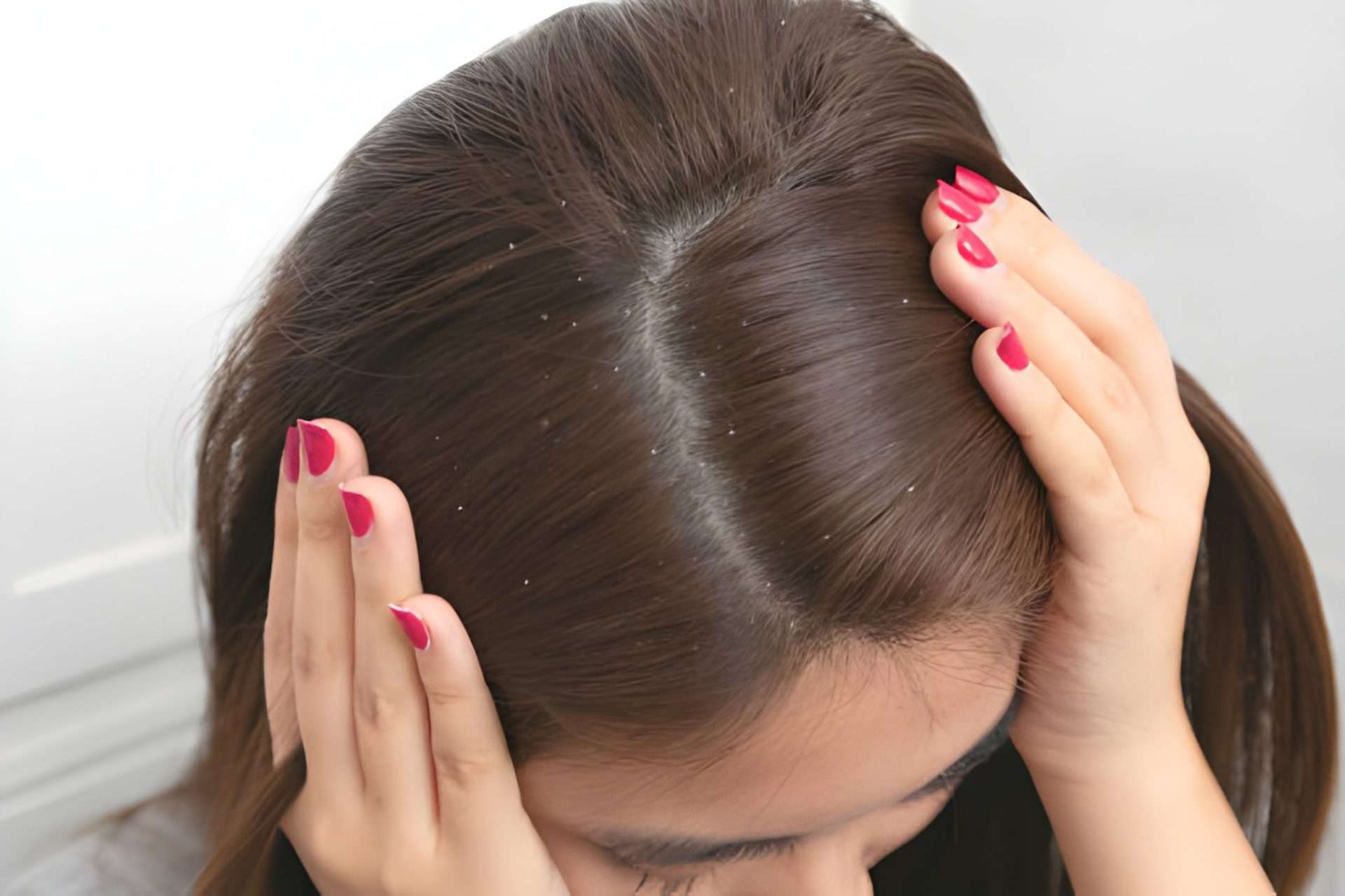Humidity during the monsoon and warmer months often makes dandruff worse. The sticky, sweaty scalp becomes a breeding ground for fungus and bacteria, leading to itching, flaking, and irritation. If not managed, it can even cause hair fall and scalp infections.
Why Dandruff Gets Worse in Humid Weather
- Excess Sweat & Oil – Humidity increases sweating and sebum (oil) production, which triggers dandruff.
- Fungal Overgrowth – A yeast-like fungus (Malassezia) thrives in warm, moist environments, causing itching and flakes.
- Wet Scalp – Staying in damp clothes or letting hair remain wet for too long encourages scalp infections.
- Product Build-Up – Heavy oils, serums, and hair products may clog the scalp when mixed with sweat.
How to Control Dandruff in Humid Weather
- Use a Medicated Anti-Dandruff Shampoo
Shampoos containing ketoconazole or salicylic acid help reduce fungal growth and control flakes. Use 2–3 times a week or as advised by your dermatologist. - Keep Scalp Clean & Dry
Wash your hair regularly and always dry your scalp completely after washing or getting drenched in the rain. - Avoid Heavy Oils & Sticky Hair Products
Thick oils can worsen dandruff by trapping heat and moisture. Switch to lightweight serums if needed. - Wear Breathable Fabrics
Cotton scarves or hats allow ventilation and reduce sweating on the scalp. - Consider Supplements & Serums
Biotin, zinc, and vitamin D may support scalp health. Dermatologist-prescribed hair serums can also strengthen roots and reduce dandruff-related hair shedding.
When to See a Dermatologist
If your dandruff is severe, causes redness, constant itching, or is associated with hair fall, you may need prescription shampoos or in-clinic treatments.
Humidity makes dandruff more common, but with the right care — gentle cleansing, medicated shampoos, and scalp hygiene — it can be controlled effectively. For stubborn dandruff, consult Dr. Disha Baxi at Skintimacy for a personalised scalp care plan.

